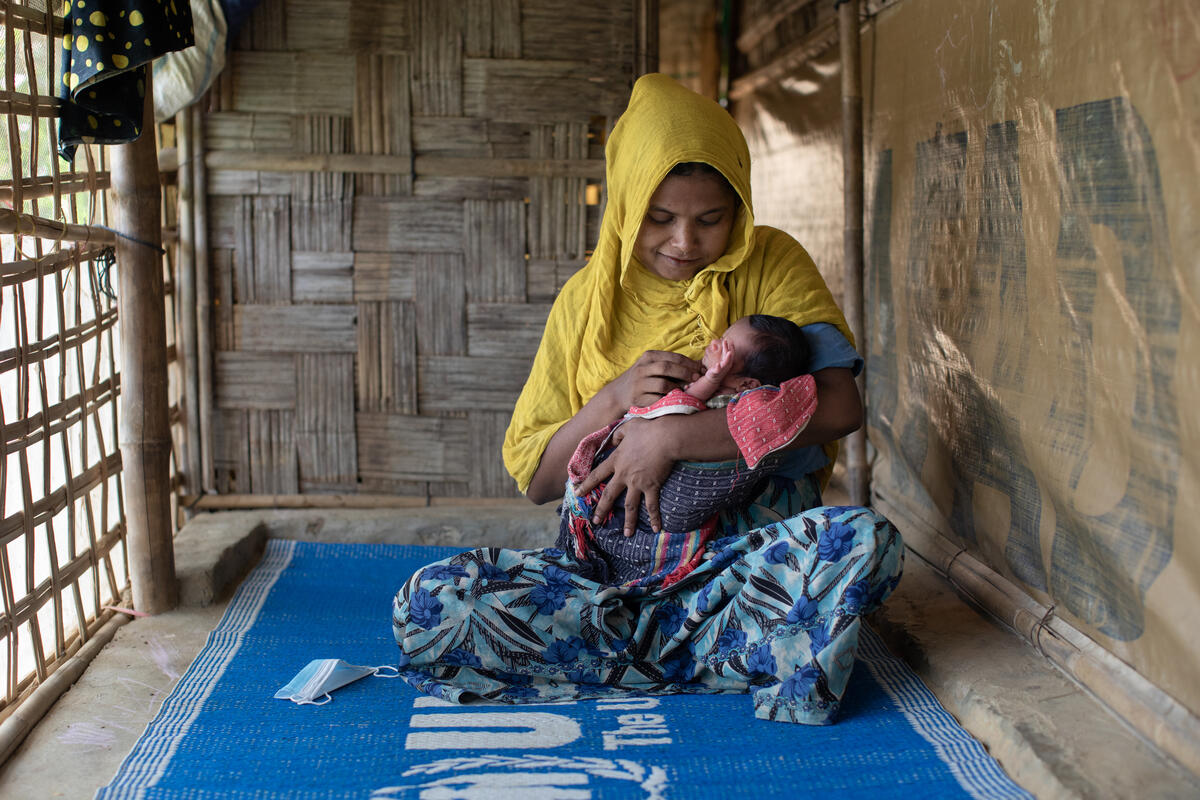UNHCR seeks $66.9 million for Great Lakes refugees
UNHCR seeks $66.9 million for Great Lakes refugees
The United Nations High Commissioner for Refugees has issued an appeal for $66.9 million for its emergency operations for refugees and people displaced in the fighting in eastern Zaire and the immediate integration of more than 500,000 returnees in Rwanda.
UNHCR's call for new funds is part of a joint appeal for $259 million issued by UN Secretary-General Boutros Boutros-Ghali on Monday for urgent activities for three months in the Great Lakes region in response to an unprecedented crisis in eastern Zaire.
More than 500,000 Rwandan refugees from eastern Zaire's Goma region returned to Rwanda over four days beginning Friday. Although the main bulk of refugees in the Goma region is believed to be back in Rwanda now, a trickle of about 1,000 refugees an hour continued to arrive at the Rwandan border town of Gisenyi on Tuesday morning.
The Goma region hosted more than 715,000 of the 1.2 million refugees in eastern Zaire before fighting broke out in the region last month. (There also are more than 600,000 Rwandan and Burundi refugees in Tanzania.)
Field reports indicate that between 120,000 and 150,000 of the refugees in Goma, comprising former government soldiers, militiamen and their families, are now on the move in the general area of Masisi in central Zaire. About 500,000 Rwandan and Burundi refugees are scattered in the Uvira and Bukavu regions and their whereabouts are still unknown. An estimated 250,000 Zairians also has been displaced by the fighting.
In eastern Zaire, UNHCR, in coordination with other U.N. agencies and non-governmental organizations, will attempt to reach the refugees and displaced people and provide them with emergency assistance. UNHCR will also pursue its primary objective of enabling the safe and humane return of the refugees in their country of origin.
It is essential to assist the refugees and displaced people as rapidly as possible to avoid further movement deeper into Zaire. Such a movement in the interior would make delivery of aid a nightmare and further contribute to instability in the region.
UNHCR and its NGO partners lost 406 vehicles, 121,815 blankets, 23,247 plastic sheets and 540 metric tons of soap. These items must be replaced. Mine clearance operations must be conducted at the Bukavu airport and access roads to make them safe for humanitarian use.
Over the past two years, UNHCR has been preparing for the voluntary repatriation of refugees but must now put these preparations on a high gear. Particular emphasis is placed on the strengthening of UNHCR's protection presence and returnee monitoring capacity in order to build confidence among refugees.








